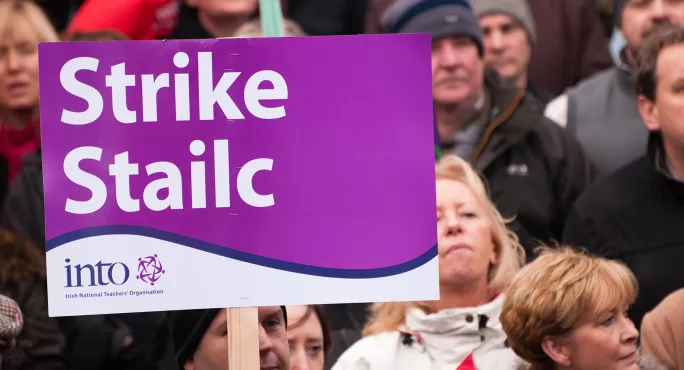Teachers in Northern Ireland are to go on strike next month.
The NASUWT Northern Ireland teaching union and the Irish National Teachers’ Organisation (INTO) have confirmed that their members will take part in a half-day strike on the morning of 21 February over pay.
The NASUWT is calling for a fully funded 12 per cent pay award for 2022-23.
Teachers in Scotland have been taking strike action since November, while teachers in England and Wales will also go on strike in the coming weeks.
NASUWT general secretary, Patrick Roach, said his union’s members in Northern Ireland had started action short of strike last May, which they have escalated twice since then.
“We have been left with no choice but to take strike action as a result of the failure of the education employers to offer any improvement on the miserly two-year proposal made last February,” said Dr Roach.
“At a time when teachers are facing the biggest squeeze on their finances in a generation, offering what amounts to a further real-terms pay cut is simply not good enough.”
He added: “Our members are not prepared to stand by while their pay dwindles and their living costs rise.”
“The Department of Education and employers must bring forward a substantially improved pay offer if they want to see an end to this dispute.”
Gerry Murphy, northern secretary for INTO, stressed that teachers had “endured a continual erosion of the real value of their pay, which has, in fact, amounted to a 20 per cent pay cut”.
He said: “This simply cannot continue. Our members rightly expect that their pay and conditions should not, especially during a cost-of-living crisis, be further eroded.
“Their pay should not only keep pace with the double-figure inflation rate but must reflect our members’ contribution to society.”
Mr Murphy added: “The DfE needs to wake up and see that this reduction of pay has led to a crisis in recruitment and retention in education.
“More teachers and school leaders are leaving the profession and with the serious underfunding in education, employers are struggling to replace them.”




